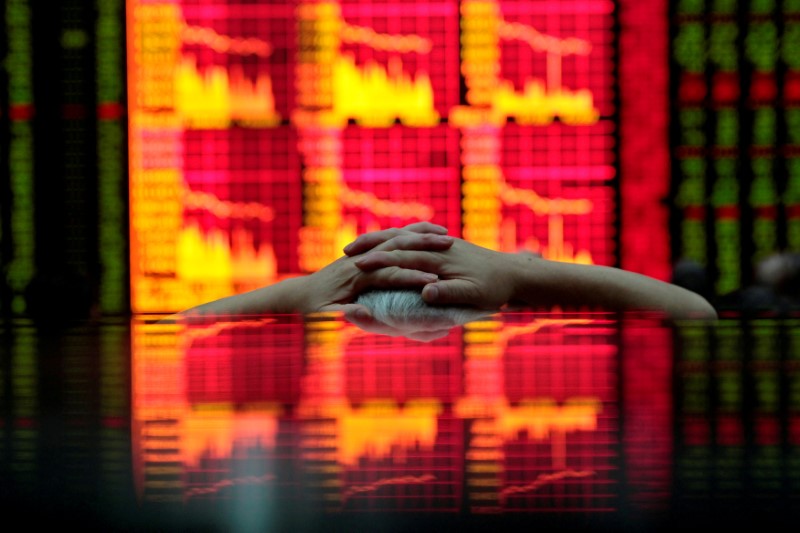By Nichola Saminather
SINGAPORE (Reuters) - Investor reaction across Asia to the inclusion of China's domestic stocks in one of U.S. index provider MSCI's popular benchmarks was muted on Wednesday, but some Asian markets can expect to suffer from outflows when the indexes are rebalanced.
South Korea and Taiwan are likely to be among markets with the biggest declines in their weightings on the MSCI Emerging Markets index (MSCIEF) as a result of the change, according to Reuters calculations based on MSCI data.
MSCI said that "A" shares, those listed on the mainland, will initially represent a weighting of just 0.73 percent in the benchmark, and will be included via a two-phase process in May and August next year.
China's blue-chip CSI 300 index (CSI300) shook off a bout of early profit taking on Wednesday to end up 1.2 percent - its best close since Dec. 31, 2015 - while the Shanghai Composite (SSEC) added 0.5 percent.
South Korea's weighting is projected to fall to 15.27 percent from 15.65 percent as of May 31, according to MSCI data. Taiwan's is set to be 12.07 percent after China's initial inclusion, from 12.23 percent.
The Philippines is likely to drop to 1.18 percent from 1.2 percent, according to Grace Aller, an analyst at AP Securities.
The reduced weightings will result in investors who follow the index cutting their exposure to these markets to stay aligned with the benchmark.
"The inclusion of China shares on MSCI's Emerging Market index would displace shares of other emerging markets," said Jeffrey Lucero from RCBC Securities.
South Korea could see outflows of between 600 billion won ($525.36 million) and 4.3 trillion won, the vice chairman of the Financial Services Commission said in a policy meeting in Seoul.
Between T$11 billion ($360.80 million) and T$15 billion could exit Taiwan's main index as a result of MSCI's move, Taiwan authorities said.
For now, investors appear to have largely shrugged off the impact of the MSCI decision, noting its symbolic significance to China but that the inclusion is small in scale. There is also ample lead time for investors to adjust to the change.
South Korea's KOSPI index (KS11) dropped as much as 1 percent after the announcement, but pared losses to 0.5 percent. while Taiwan shares initially fell 0.5 percent but recovered to trade close up 0.24 percent.
"The scale of rebalancing required by index trackers will be much less than the impact of the 2015-16 addition of overseas listed stocks (i.e. the China ADRs) which were four to five times larger," UBS strategists Niall MacLeod and Matthew Gilman wrote in a note.
Still, some markets are already trying to find ways to limit the outflows and entice investors to remain.
Taiwan plans to create an index with South Korea, made up of technology and high-dividend shares, to keep investors from exiting, Chi-hsien Lee, president of the Taiwan Stock Exchange, told Reuters on Wednesday.
Taiwan will also encourage more of the island's financial institutions to list on the domestic bourse, Lee said.
